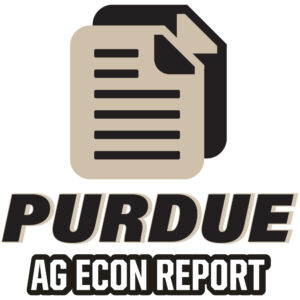Biofuel production & policy: Contributions to economic & environmental analyses and policy decision
January 16, 2024
PAER-2024-06
Farzad Taheripour, Professor of Agricultural Economics
During the past two decades, biofuel production has surged globally due to market forces and policy interventions. Throughout this period, the faculties, researchers, and graduate students of Purdue University’s Department of Agricultural Economic have made significant contributions in advancing national and international research on the economic and environmental consequences of biofuel production and policy.
Their extensive research, comprising over 100 peer-reviewed papers, book chapters and official reports, spans a wide range of biofuel-related topics. These include, but are not limited to:
- Techno-Economic Analysis (TEA): Assessing the economic feasibility and viability of biofuel production.
- Supply Change and Life-Cycle Analysis (LCA): Examining the entire life cycle of biofuels, from production to consumption to understanding environmental impacts.
- Economic Impacts: Assessing both long-term and short-term economic effects of biofuel production and policy on agricultural and non-agricultural activities at local, national, and global scales.
- Land-Use Change Effects: Evaluating land-use change implications of producing biofuels from various feedstocks, including conventional crops like corn and soybeans and dedicated energy crops such as miscanthus and switch grass.
While these research efforts have helped the research community to better understand the economic and environmental impacts of biofuel production and policy, they have also contributed toward policy design and debates in this area.
The biofuel research conducted by Purdue’s Department of Agricultural Economic has been instrumental in shaping biofuel polices, defining low carbon fuel standards, and receiving widespread citation in official reports from various national and international agencies. Notably, the California Air Resources Board has adopted emissions estimates related to Induced Land Use Change (ILUC) from Purdue’s GTAP-BIO model. The Argonne National Laboratory utilizes Purdue’s ILUC estimates to assess the carbon intensity of biofuel pathways in its carbon model (GREET). Several states set their biofuel policies using this model.
Additionally, the Carbon Offsetting and Reduction Scheme for International Aviation (CORSIA) of the International Civil Aviation Organization (ICAO) relies on Purdue’s GTAP-BIO model to evaluate ILUC greenhouse gas (GHG) emission values for Sustainable Aviation Fuel (SAF) pathways. The US Environmental Protection Agency (EPA) has cited various papers and reports from Purdue in its Third Triennial Report to Congress on Biofuels (RtC3), emphasizing the significant contributions of researchers such as Alla Golub, Roman Keeney, Thomas Hertel, Farzad Taheripour, and late Wallace E. Tyner.
In a model comparison exercise conducted in 2023, the EPA has used five models to evaluate the potential of biofuels in reducing GHG emissions, with the GTAP-BIO model being one of them. The results of this practice will be used to define new goals for the US Renewable Fuel Standard (RFS).
